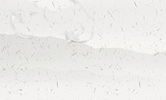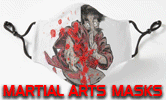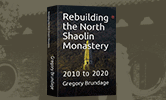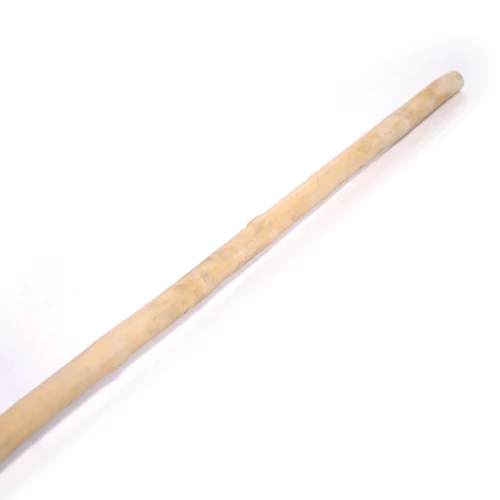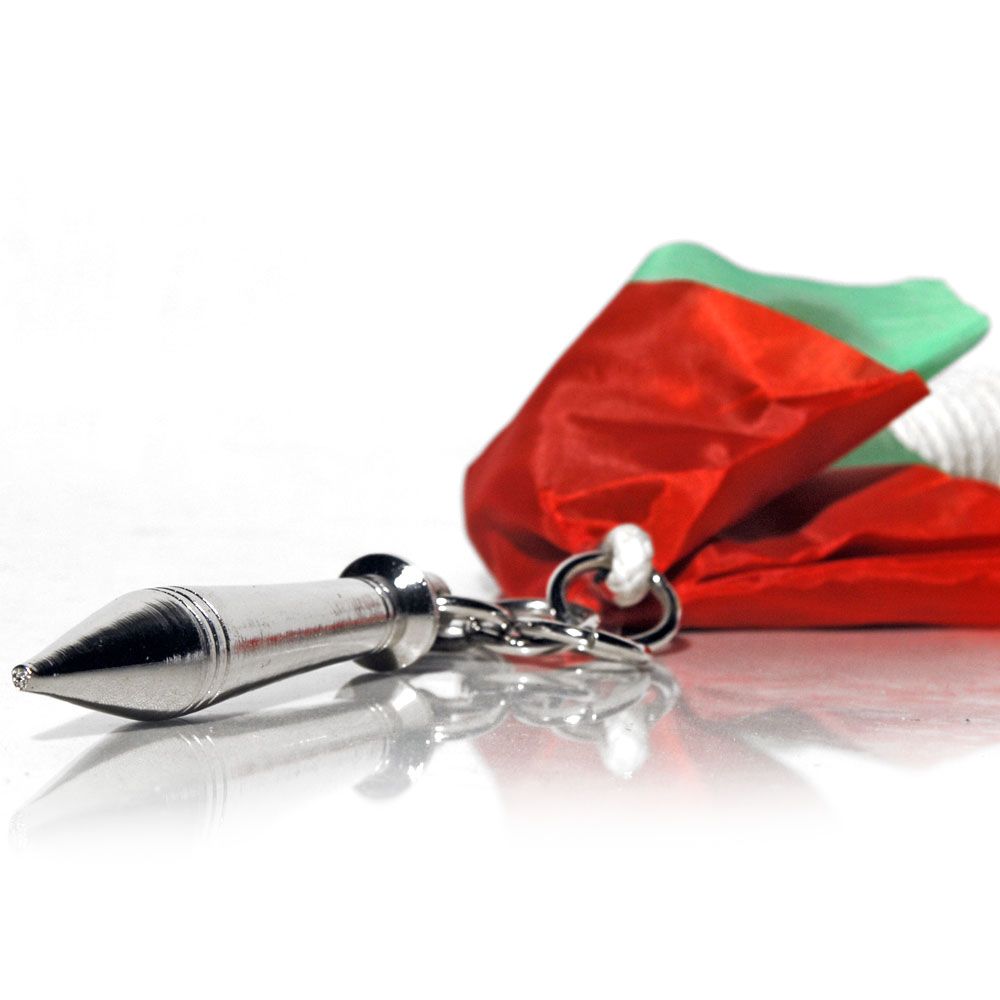By Gene Ching
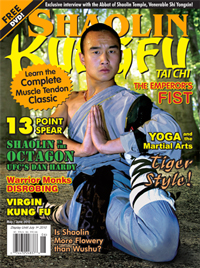 Exclusive to KungFuMagazine.com: Transcript of the interview with Reverend Heng Sure and Dr. Martin Verhoeven
Exclusive to KungFuMagazine.com: Transcript of the interview with Reverend Heng Sure and Dr. Martin Verhoeven
Held at the Berkeley Buddhist Monastery, January 21, 2010
GC: Shaolin warrior monks, or wuseng, are a unique class of monk because they don't take all the vows. Their role is to preserve the martial heritage of Shaolin. Have you ever heard of anything like that in any other Buddhist tradition?
MV: No. There's no parallel in our tradition, and with any of the teachers I had, of anything except full ordination as a monk where you take 250 Bhiksu precepts and you take the 10 major and 48 minor bodhisattva precepts. Those precepts are very clear. That is the only basis to become a monk.
There's another step. You could be a novice who is in training to be a monk, and that is 10 precepts. Traditionally, that's all that's ever been, a novice or shami, and after a certain amount of time, on the basis of the 10, you'd take the 250 major and the bodhisattva precepts and you become fully ordained.
Chan was only one of the practices you were trained to do. Now in China, different monasteries were built up around Chan and Pure Land and so forth and the monks would wander and learn all these different things separately and sometimes stay in one place. But there was nothing where you could modify precepts or you could add to precepts and you were considered monastic.
GC: The Shaolin wuseng justify themselves by citing permission from the first Tang Emperor, Li Shinmen. According to legend, he granted the Shaolin monks the permission to eat meat and drink liquor. That's unsubstantiated by the historical record, so it's probably apocryphal.
HS: There's a problem. Let's say it's an apocryphal story, but it's an interesting teaching moment.
The first issue to raise is, if the emperor said that now you can relax your vows and do what everybody really wants to do - which is break the precepts, drink alcohol, eat meat - the problem with that is that somehow that assumes that people don't want liberation and that the Buddha was giving you these precepts to make you unhappy and to oppress you. And that being a monk is something nobody wants. Once you're inside the dharma, what you realize is those rules are there to help you get liberated. They're not the Buddha saying, "You can't have fun - you're a monk." He's saying, in fact, if you are serious about your meditation, and you want to see your mind, and you want to end the suffering, here are the things to avoid: killing, stealing, lust, lies and intoxicants. So meat would be killing. Intoxicants would be any kind of alcohol. If you try to meditate, and you still kill, steal, lust, lie and drug yourself, your mind is going to play tricks on you. You're going to find obstacles to the clarity that you seek and the freedom that you're working for, that you've sacrificed for. So it's only somebody from outside, that's working completely from worldly perspective that says all the good part is the alcohol and meat, would think like somehow the monks were rewarded by being able to break the rules. That's an issue.
And it's a common thing - oh you poor monks, you give up so much. From the monk's point of view, once you've meditated and have a clear mind, you think, "How can people assume that going to Las Vegas is really fun?" You come back with a hangover. You come back having polluted your body. Your mind is unclear. What crazy things did you do when you were drunk? There's no liberation in intoxication and meat. And so that's the foundation of that motion, that somehow the monks of Shaolin got a special deal from the Emperor, so they're the happy monks. That's completely misguided.
GC: There is significant evidence that the Shaolin monks fought for the Tang Emperor.
MV: In every major world religion, you have this funny relationship between church and state when the religion becomes more of a nationalistic thing. So as Buddhism starts to - in China - become more enculturated, then you get conflations of things that used to be clearly separated. And that was an issue of conscription. As more and more young men became monks, less and less men were available because of their vows for the military. So there's this grey area then. What do you do when you don't have enough men for the military? Where are you going to get them from? So the tension between the monasteries and the state had to do with property and wealth, had to do with not creating families because they were monastic, not bowing to the Emperor, not being taxed, and not being available to work for military conscription. So I'm sure there were compromises at different times when these things got conflated then separated. But in the actual tradition that Heng Sure and I are part of, even if there were allowances made by the state for these categories of "monks," in the tradition of self, there was not.
And in fact, one thing I did remember hearing talking to Hai Deng about this. Historically, even if they had that allowance, they lived apart. They did not live with the monastic sangha. Those monks that ate meat and drank wine and what not lived in separate quarters and were not integrated with the rest of the monastic community. Hai Deng said even when he was there, he was disappointed. He said, "Many of the monks I am taking on were not really monks." And he said, "I teach them, but they go out and they eat meat and drink wine and pretty soon they mix with women. And their kung fu will not be full and complete. This is what the state has come to."
HS: In a monastic community, and I'm sure it's the same in any military or school, if there's somebody that's your equal, that has got a special deal, it ruins moral. So if you have a body of monks, thirteen, who get to do something that releases the tension, the creative tension of the hard work, it shoots the moral of the community. The Buddha made the sangha absolutely equal. The only reason why one monk walks in front of another monk is seniority. But everybody shares all the benefits equally.
MV: That seniority is based on when they ordain, not their age.
HS: When they took the robe, yes. So in terms of offerings, nobody gets more. It's completely equal. So that way, you never have to look sideways. You're always looking forward - at wisdom. But you never have a sense of "they're enjoying something and I'm here busting my buns trying to clear my mind." There's that sense of inequality that destroys moral. So to think that, somehow, the sangha would allow a group to be special, that's just not wise. That's not how it works. Pretty soon you've got antagonism developing among this body of people that have to work together because they're eating once a day, getting up at 4 in the morning. If somebody's sleeping in, it's trouble immediately. Your meditation is in trouble. I'm sure in any body of hard working people, it's the same. If you have inequalities among status and rewards, you can't survive. The Buddhist sangha survived for 2500 years precisely because of that utter socialist, equally-shared impartiality.
GC: Let's discuss disrobing. How common is that within Buddhism?
HS: There are differences in the Vadas. In Theravada, which is Thailand, Cambodia, Laos, Burma, Sri Lanka and parts of Vietnam, ordaining is seen a lot like going into the military, probably more like the National Guard.
MV: Or a spiritual rite of passage. You know you're going to get married and have kids, but as part of your development, you take a year or two to live a monastic life, with the full knowledge that you're going to go back. Even the King of Thailand goes through this ritual.
HS: It's really wholesome. You have an experience that you wouldn't have any other way. The stereotype is that Thai women prefer husbands that have been to the sangha because they're much more mannered. And they're humble.
MV: That complicates the motivation for going in (laughs).
HS: I know. So in Theravada, disrobing is fairly ordinary. So for monks, there's a formula for returning your robes to the teacher upon whom you've confessed reliance. And you're done. Good luck.
In the Mahayana, the expectation is that you're going to stay a monk for a lifetime. It doesn't always work that way.
MV: It's much more similar to a Catholic priest. There isn't a sense that you become a Catholic priest for a week or a month or a year. The idea is that this will be a lifetime vocational commitment. The Mahayana is closer to that.
HS: The training and preparation before you ordain is harder comparatively than Theravada. In Theravada, you can ordain pretty quickly, in a matter of months. But in the Mahayana, it's a minimum of two years. So the actual dharmic process (of disrobing) is that you bow to Buddha, return your robe and notify the monks that you're leaving, and that's it. In Mahayana, they say that monks are allowed to return seven times, to be ordained seven times. If you return to lay life and change your mind and say, "I'm back," you're allowed to do that assuming that your mind is straight and your teacher feels that you're not deluded.
MV: There's a name change too. When you ordain, you get a name that's different than your lay name. And when you go back, you also give up the privileges that go with that, being a priest and so on. If you've made a name for yourself as a monk, when you go back, you can't keep that name. And it's primarily to prevent confusion because one of the reasons, especially in China? What does it mean to be a monk? You shave your head and wear robes, are you a monk? Does your name make you a monk? So in the Mahayana tradition, it's very clear that your name is part of your robes. Once your robes are gone, your name goes back to your original lay name. You're no longer a monastic.
HS: There would be people who return to lay life and keep their monk name and teach dharma, teach meditation, and have an income based on being a person who was monastic. "We've heard of you but you're wearing different clothes." So it's clearer to give that name up and start over again.
GC: If you disrobe and then re-robe, do you return to your same monk name?
HS: Your dharma name? You keep the name when you take refuge. That's between you and the triple jewel. You have become a Buddhist at that point. So that's your dharma name and lay people have that name. But the monastic name is called the wai hao. That's what you get from that teacher. And when you come back, that teacher may not be still there. He may be gone, he may have returned, he may be dead. So you start over.
MV: Especially in the west now as Buddhism and the martial arts have come over, there's a certain mystification - that if people have a certain appearance, they are presumed to have all of the other things that go with role and status - as being monastic, spiritual, maybe having access to Chan and Zen, or spiritual insights. It's not necessarily the case at all. So part of the leaving home process, you shave your head, you take the robes, you get a name, it's a formation turning your role and identity, of which you have then different relationships and different responsibilities that you didn't have before. For example, the celibacy keeps you completely. And that's saying, "I'm celibate. Do not approach. Do not entertain anything along those lines because I have this." But if you smudge that boundary, it becomes very confusing. What are you teaching? What are you the teacher of?
The borderline between becoming a monastic and disrobing involves all those aspects because it's an important social statement to people. When they see you, they know who you are and what you stand for, what your rules and where your boundaries are. Now when that's not clear, things get really confused. So you get many scandals in Buddhism in the West because people who seem to be a monastic and celibate with clear roles, in fact, weren't. They hadn't properly ordained so they thought they had this latitude. And then other people come from traditions that signaled that they were that way end up getting burnt because they expected them to behave in such a fashion, either towards sex or money or something like that, and found out they behaved in another fashion. So it clearly blurred the line, so I think that the monastic tradition, both Theravada and Mahayana, has set a visual and identity keys and cues to say that this is somebody in this form, and they're held by these rules and regulations and this is what you can expect.
So the robing/disrobing becomes a rite of passage into a different identity and when it's clear that you're not that identity. It's actually to protect society more than the individual. It's almost like consumer protection. (laughs) I know what I'm getting when I go to see this person. We've had many Asians come and say, "Oh, I went to such and such place and there's a monk, but he wasn't. He had a wife and kids." And they're totally confused. The Westerners are like, "That's cool." (laughs) It's a very different thing. So the robing/disrobing is part of a deeper relationship that you have in this fiduciary responsibility role to society. And people know exactly what to expect and how you're supposed to behave and what you can eat and can't eat.
HS: When did we last talk to you?
GC: About three years ago.
HS: Three years have passed, and in terms of the dharma, nothing has changed. We're at the very dawn of the Buddha and sangha coming to the West. It's going to be decades before we know what's going to happen to the sangha in the West. One thing is the robes, in what we wear.
It's happened every time Buddhadharma has jumped a culture or a continent or a language base or a generation. The arhat shoes - you know the monk shoes? Those won't make it. They're not going to make it in the West. When it's raining, you couldn't wear those outside. You have to take them off or put up with wet feet. The robes that are long sleeves that monks wear in ceremonies? We've got rid of those already. Those are already gone because we work. You can't work in those robes. This robe - in China, they took it off. In America, we put it back on. But will it be this form? Master Hua suggested that we try to sew it into the robe so that you're always wearing the precepts. This is the sign of the precepts. In China, they took it off. They said for work reasons. Also in China, with the weather, to put this on top of two layers is hard. I've been on airplanes a lot, going to China and Australia, and I try to fasten a seatbelt wearing three layers of robes, it's just a headache. You try to go to the bathroom; you just end up taking it off and folding it up. So it's easy to understand how robes would change according to cultures.
In Thailand, the Thais always wear their right shoulder bare. When they got to England, they tried to wear bare shoulders in winter there. They froze. So they had to go to Bangkok and get dispensation. So they wound up with an undergarment for the first time in Thai Bangkok sangha.
My point is to say that we're still early, and come back to see it. But in terms of the fundamental issues of what is a monk and what is not a monk, probably won't change. We hope not. That's what's kept us alive all this time.
MV: When he is dressed like that, he is seen as a mendicant - in other words, someone who doesn't work for a living, who is in a relationship in society that says, "I cultivate spiritual life and deepen my spiritual practices and I share that with you. In return, you provide me with food, clothing, medicine and the essentials of life. That's our relationship." Now if that's gone and people are wearing a robe and have a shaved head, people are going to tend to want to come up to you and make offerings and provide for you financially because the idea is that you don't. So it blurs that one too, and that could become a real issue, especially in societies where there isn't a lot of money. The food that was brought today was brought by sincere Laotian women, who make this food in all sincerity and bring it because they know he doesn't have a card or any money to go out and buy food. In return, he gives dharma back in teaching. That's the long-time relationship that's been from the Buddha's time to the present. Part of the problem becomes if you have people dressing like monks and looking like monks, what's that relationship then? Do they have money of their own? Do they have credit cards? When they receive offerings, which is one of the big Buddhist issues because to receive offerings puts you in a karmic relationship with the donor, and you have a sense that you have to live in a certain way to honorably accept that offer. If that is broken down, then another of these key social things that are clear, start to get fuzzy.
HS: Proof of that is in Thailand, when I went out for alms, nobody recognized me as a monk. I was wearing my brown robe and people didn't know what to do with me because I didn't look the bhikshus they were used to. Only when I got in line with my Theravadic brothers did they recognize me as a monk. So, how funny, right? And yet in China, clearly, I'm what they're looking for. So it's really that visual thing. There's all those expectations.
GC: The Cultural Revolution is cited as a recent turning point in Chinese Buddhism. Monks were forced back into lay life. Some were even forced to get married and have children.
MV: It's not the first time.
HS: At the end of the Tang, there were three emperors named Wu who were particularly hard on Buddhism. In a situation like that, what are you going to do? Some monks go to the hills, go to the caves, stay away. Others stay in the cities and just take what Buddha gave.
One of the elders, one of master Hsuan's colleagues, is a monk called Yi Cheng. He's now the chairman of the Buddhist association. Yi Cheng - single sincerity. He's just wonderful. He glows. He spent ten years in jail during the Cultural Revolution. Everyone knows that and they give him increased status because he went through that. Anyway, in a situation like that, the fact is that they made it through, that they're still monks, as long as they are monks. Zheng Chan is one of them. I don't know what his position was before the Cultural Revolution, but he was imprisoned and forced to return to lay life, forced to marry and had a family. When the coast was clear, he came back and became abbot with his wife and his family. He took the precepts again.
We don't have cultural revolutions every century. The fact that he was willing to return and still could, that's ok. I can't even comment on that. When I saw Yi Cheng, when Yi Cheng talks about what happened to him when he was in jail, you can see it.
MV: There was a major shift in Buddhism in Japan after the Meiji restoration. During the Meiji restoration, Buddhism moved along those lines where you had the actual burning down of temples and monks and nuns forced back into laity and also pressured back into eating meat. And really, the monastic sangha never fully recovered from the Meiji restoration to this day. Whereas in China, the monastic sangha came back and reestablished itself. After that, Buddhism became largely a lay phenomena, so most of the Buddhist ministers were married like in the Protestant tradition. There was a return of some of the sangha, but it never recovered from the Meiji restoration.
HS: That was a real test case because by law they were forced to return to lay life. That was a situation where the sangha was too big. Most of the gold was in images instead of the imperial treasury. Many of the men were wearing robes instead of military uniforms. Land was in monasteries instead of being available to the emperor to be taxed. So they just smashed them.
The burn marks, jieba, they are for that reason. (Heng Sure shows the jieba burn scars on his head and forearm.) Because nobody is going to voluntarily light incense on their head or do this kind of thing, so when the coast is clear, when the Emperor Wu dies or gets deposed, you can come back and say, "I did it." That's particularly the reason for those marks are to prove that you were a sangha once the ban on monks is lifted.
MV: I used to think as a Westerner that monasticism was a personal commitment to a spiritual path for your spiritual self development. In China and throughout Southeast Asia, and back in Buddha's time, it was primarily a social shift. It wasn't an individual "I'm liberating myself" sort of path so much. It was a huge social statement.
If you look at the Buddha's precepts when someone ordains, yes, there's a body of those that have to do with your personal self cultivation and your personal integrity. But a great majority of them have to do with your social relationships of how you appear in society in relationships with other people and with institutions of wealth and money and so on and so forth. And so those precepts are geared to protecting a role that is socially seen and socially defined. The social dimensions are really very, very important. That's why there's 250 of them. Essentially, the personal ones come down to about maybe five to ten. The rest of these are all precepts that have to do with your appearance, impropriety, who you associate with, how much time you spend around power and wealth. All these things are circumscribed to keep you out of compromising that social role, that social function. To see robing and disrobing as a personal matter is a very small element. The larger element is the protection of roles and relationships within the society to be clear.
HS: If you don't mind me speaking dharma a little bit, just to answer this question. What is leaving home and why does somebody do that? My personal answer is that if I hadn't met master Hsuan Hua, becoming a Buddhist monastic is the last thing I would have done. It wouldn't have even occurred to me. I haven't met that many other Chinese Buddhist monks who I thought were worthy of following. But if he had said, "In order to do what I've done, in order to follow me, you have to paint yourself green and walk down Market Street naked," I would have said, "When do I start?"
MV: In Berkeley at that time, that wouldn't have been unusual. (laughs)
HS: I know. You could have fuchsia with a choice of spots.
Anyway, I would have done whatever in order to do what he did. He inspired me. I wanted to follow him. My understanding of the sangha order - the Buddha wasn't interested in creating a sangha. We're now going to make a religious institution - not a bit. He said, "I am liberated and suffering has ended." People standing next to him would testify that this guy is different. And he would say, "Here's the path. Suffering can end. Here's the way you can do it." And people said, "Sign me up because I want to be like you."
There were many, many, many, many religious Dao in India at the time. It was then and is now this hugely religiously active society. There were dozens of ways to practice and Buddha spent six years in the mountains, learning from all the various shifus in all the various Daos. And he discovered one by one that most of them were operating outside the mind. Most of them were teaching you to never bath or grow your hair and fingernails, to be natural, naked ascetics. They're still there. You can still see them. And the Buddha said, "My mind is still on fire so that doesn't help." Finally he got to the middle way, looking in his own mind.
So the interesting point that I think helps in understanding a little bit about Buddhism, it's different than not just Judaism, Islam and Christianity, but all theistic religions is that when you follow the Buddha, in any step - take refuge, become vegetarian, following the precepts, whatever - you do so with the notion that the endpoint is you can become the Buddha. In other words, your wisdom can develop. You can transform your afflictions just like he did. That's the promise, sooner or later.
You want to go directly or you want to go slowly. It's kind of like ripping the band-aid off quickly or slowly. Lay people go more slowly because why? I've got relationships I like. I've got property. I've got jobs and responsibility.
In any theistic religion, that would be absolute heresy. I practice Christianity hoping to become God? Nonsense. No you don't. Creator, creation; shepherd, flock. There is this gap between Theos and the devotee. In the Buddhist tradition, there's this sense that if you do what the Buddha did, you will become the Buddha, which is a title, not a person - the awakened one. That's very different and the sangha, all this thing we're talking about - leaving home, etcetera, etcetera - is done completely with the notion that whatever gets you there in the shortest possible time, that's what I'll do.
And the joy of having what we call a Da Shan Zhi Shi, a real spiritual friend, a kalyana-mittra, like Master Hsuan Hua there, someone who has realized the Dao, is you see it. You see it directly. This is what it's like when you do those things. So when I saw him, I was impressed. I was studying Buddha-ology in the library of Durant Hall, reading the sutras and studying the chants, and my question was, "Does this person exist?" I was reading about the ancients in the sutras and I was thinking, "Museum stuff. History. Ah, think of the days of greatness. Bodhidharma. Just think." And then I saw this monk walk up and I thought, "There's an ancient who stepped right out of the sutras. There he is. There's someone who is real." And I followed him. So if he said, "Dress this way" or "Eat these things," I would have said, "Fine." In generation after generation, it's harder to get that sense of direct contact with someone alive, but that's what I saw.
GC: Harder? Why do you say that?
HS: Because there's no external sign that somebody has realized the Dao. There's just a feeling. And that's why I say if it hadn't been for Master Hsuan Hua, I don't know if I would have become a Chinese Buddhist monk. Certainly Master Hai Deng had it too. He had a fire. He had a light in his eyes.
That's the underlying strata below the creation of the sangha. It's an expedient so that people can follow that inspiration to do what the Buddha did, to do what I saw in my teacher. And if you had to say what that thing is, I would say there's many, many answers. They are more or less centered around the question, "Is this it? Is this all there is?" For the prince, he saw an old person, a sick person and a corpse. And suddenly, after being told that everything was happy and bright, shiny and everything is good, in short order, he saw old age, disease and death. And then he saw a monk. There was no sangha at the time. And he realized there was a path out.
The question was, "Is this it? Am I, with all my blessings, abilities and gifts, just going that way?" So to ask that question, and then you ask it big, "Is this all there is? Are we just waiting for Haiti to happen in San Francisco? Tangshan? Taipei? Are we just waiting for the next disaster? Everybody"s starting to dump on Obama now, a year out. Is this it? Are we waiting for the next disappointment?" And how you answer that question determines whether you decide to leave home. Leaving home is just one step in the process.
GC: What do you think about Shaolin martial arts masters wearing Buddhist robes?
MV: It is somewhat unfortunate to see so much conflation of the martial arts with monasticism, especially monks. It is unfortunate and not very representative. Yes, we did some martial arts, but it was more or less something you could find on your own if somebody came through, and it was always put in the context of conditioning your body, so you had control over your body, so you had control over your mind and go along this path that Heng Sure is talking about. There wasn't anything but an expedient to train yourself physically to be able to train yourself mentally. It was not an end to itself, but a means to self discipline. We were never encouraged to go any further in any martial arts, certainly not in any kind of application, aggression or violence, and not even necessarily self defense.
Our teacher was very clear. I had a black belt and I went on a pilgrimage and I, like, "Okay, if someone comes up, you know." And as soon as we went out the door of the monastery, that day, and I had this in my mind - I didn't say anything - my teacher said to me, "You cannot use one finger of your body to touch or harm anybody even in self defense. As soon as you do, you are no longer my disciple. I will disown you."
But what happens? There were all these weird scenarios in my mind and some of them actually happened - people with guns and knives and so forth. He said, "I will give you the only weapon that you can use." I thought, "Here it is. Right out of the kung fu master!" He puts out his hand and says, "If you can take this stone" (laughs). And he says, "You have to use the four unlimited minds." And I thought, "Oh, that's jargon talk for some kind thing." He said, "Kindness, compassion, joy and equanimity. That's the only martial art that you can apply and use when you're out."
And I thought, "You must be joking. How can I protect my monk and myself?" But the point in saying this was that in actual tough life situation, even if you knew the martial arts, you're not only discouraged but you're almost prohibited from using them. To even put those forward as a mark of who you were was considered to be really low, in some ways, a violation of the precepts. One of the precepts in the monastic vows prohibit you from extolling yourself either with spiritual powers or other powers. The self-effacement of the monk had to do with disguising or concealing that, even if you had it. So the association that many people have when they think of Buddhist monks and the martial arts is really unfortunate.
HS: Mind you, Chinese Buddhist monks practice martial arts, and maybe Korean, but not so much. We have an annual sangha gathering that meets once a year, and there's a monk from Malaysia, Venerable Jiru. He's now in the Midwest. He was a major martial artist. I don't know his teacher. His teacher was pretty esoteric. He taught him serious martial arts. And he and I were talking, actually doing a workout up at Mount Shasta, and these Tibetan monks walked by. They were looking at us and asked, "What are you doing?" We said, "Martial arts." They said, "What a waste of a perfectly good human incarnation."
Even exercise, Tibetan monks, same with Theravada, they consider for a monk to do any kind of martial arts- Well, maybe if you just can't stay awake when you meditate or something, but the idea that there's any kind of physical cultivation that's a benefit - not there. So it's very Chinese. This whole question is a Chinese cultural addendum to martial arts.
Personally, I think it helps tremendously. I think tai chi and neigong, the internal martial arts, are just perfect for monastics.
MV: When Hai Deng came and taught us, the first thing he said was that this was not teaching you how to fight. It was teaching you how to not fight. Just so we're clear about this. And then he said the next thing it teaches you is how to be a teacher, because when you're a teacher and you had disciples, you had be able to take a lot of blows. He meant that literally. He said this is teaching you patience and inner strength.
We have to somewhat blame David Carradine (laughs).
| Discuss this article online | |
| Shaolin Special 2010 (May/June) |
Click here for Feature Articles from this issue and others published in
2010 .
Written by Gene Ching for KUNGFUMAGAZINE.COM
![]() Print Friendly Version of This Article
Print Friendly Version of This Article

